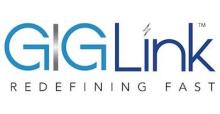Innovating for Community Benefits in Clarksville, Tennessee - Community Broadband Bits Podcast 373

This week, we have a returning guest from Tennessee to tell us about the many positive changes occurring in Clarksville, home of CDE Lightband. Christy Batts, Broadband Division Director at the network joins Christopher; her last appearance on the podcast was in 2013.
This time, Christy describes how the community network has been innovating for better services and finding undiscovered benefits for local businesses. Voice service from CDE Lightband, is helping small- and mid-sized establishments cut costs and increase revenue. The city is also implementing a new video platform and continues to increase speeds in order to allow subscribers to make the most of their Internet access.
Christopher and Christy talk about how this town has started using innovations in technology to maximize home Wi-Fi with indoor ONTs. The network has had better then expected financial success, even in a place where people tend to relocate frequently, and how other utilities have reaped benefits from the fiber. Christy gives a run down of the future ideas for Clarksville, including plans for free Wi-Fi in public spaces, such as parks. This may not be the first city you think of when you consider municipal broadband in Tennessee, but maybe it should be.
This show is 24 minutes long and can be played on this page or via Apple Podcasts or the tool of your choice using this feed.
Transcript below.
We want your feedback and suggestions for the show-please e-mail us or leave a comment below.
Listen to other episodes here or view all episodes in our index. See other podcasts from the Institute for Local Self-Reliance here.
Thanks to Arne Huseby for the music. The song is Warm Duck Shuffle and is licensed under a Creative Commons Attribution (3.0) license.



